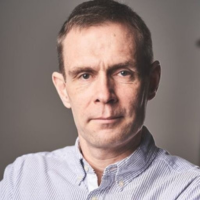Henrik Vosegaard
Open Group Master Certified Architect & IBM Quantum Ambassador, IBM Consulting
Henrik Vosegaard is an Open Group Master certified IT architect at IBM with 20+ years of experience in design and implementation of IT solutions across the following domains:
- Hospital systems
- Governmental systems
- Public information portals
- Procurement services / EDI and PEPPOL standards
- Public infrastructure
He has extensive experience with the full product life cycle, from idea generation, product design, and piloting to large-scale implementation, operations, and maintenance of complex solutions. He works with teams across the globe under agile principles.
Most of his time is spent working with Danish public clients, but he is also engaged internationally in knowledge and solution sharing, standardization projects, and as an instructor in IBM's architecture frameworks.
Before joining the IT industry, he was a researcher in Mathematics and has maintained strong ties to the research community.
As a natural alignment between IBM’s strategic focus and his own scientific background, he is particularly oriented toward the following trends:
- Quantum computing: As an IBM Quantum Ambassador, he actively communicates about this emerging technology and explores its use cases with the ecosystem of quantum adopters.
- Artificial intelligence (AI): With generative AI transforming industries in recent years, he emphasizes the importance of leveraging AI in a professional context with trustworthiness and data integrity.
- Cryptography and data security: Quantum computers have the potential to break the public encryption schemes that underpin today’s internet communication. He actively promotes the adoption of quantum-safe cryptographic standards.
- Cryptocurrencies and blockchain: He believes that the principles of trust, traceability, and transparency—achieved with minimal or no centralized governance—will become increasingly relevant in a globalized world.
- Reduction of IT energy consumption or the development of scalable, sustainable alternatives to current energy sources.
- Adoption of open standards and open source to ensure transparency, trust, and traceability.

